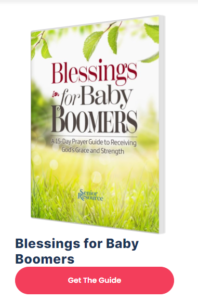Legal Documents that America Should Not be Without When Aging
Hi Toni:
My husband is retiring at the end of the year, and we are losing so many benefits from his work such as company benefits, life insurance, dental and vision. I know I am missing something that is important for us to retire with as little stress as possible. I do not know what other subjects that we need to explore.
I have been told that if we do not have a Power of Attorney in effect for both of us and me or my husband have a stroke or another disability and cannot decide for ourselves that we could have to go to court and file for guardianship.
I have no knowledge of this and really do not know what type of attorney we will need. I want to make sure that I get this done correctly. Thanks, Sandra from Galveston, TX
Hello Sandra:
I completely understand how you feel because Americans that are enrolling in Medicare or retiring, whether healthy or with a serious health situation are struggling with what to do. During a Toni Says® Medicare consultation, the Toni Says Medicare team advise everyone to seek an attorney or legal aid to have a new or updated Power of Attorney, Medical Power of Attorney and Living Wills executed properly. These three legal documents can make your life stress-free during a trying medical time.
Adult children of elderly parents need to be sure that their parents also have these three legal documents in place. Elderly parents need to realize that they are not giving up their independence, but only helping their adult children when they must help their precious elderly parents during trying times.
It is not an easy time when an adult child must take over the parent role for the one who has been their parent all their life.
Let us discuss the difference in these three legal documents:
- Power of Attorney: is the cornerstone of a financial plan. It ensures that a person’s wishes will be respected if there comes a time when he or she is unable to act. It is a written document whereby someone is appointed to manage that person’s financial affairs in the event of illness or incapacity. Signing a power of attorney is critical to ensure a person’s future independence in the event of illness or incapacity. Without it, one risks having his or her affairs managed by a court-appointed guardian, a stranger, under court supervision and often without the ability to have any input. In other words, the person literally loses financial control.
- Medical Power of Attorney :(also known as a Health Care Power of Attorney) gives someone you trust the legal authority to act on your behalf regarding health care decisions if you ever become incapacitated or unable to communicate.
- Living Will/Advance Directive: is a written statement that details the type of care you want (or do not want) if you become incapacitated. A living will bear no relation to the conventional will or living trust used to leave property at death; it is strictly a place to spell out your health care preferences or wishes.
Sandra visit www.seniorresource.com to research estate planning and elder law issues or interview attorneys or legal aids that specialize in eldercare, family law or estate planning or
Need additional help understanding Medicare and more Boomer/Senior information with Toni’s Medicare articles and Medicare podcasts are available at www.seniorresource.com/medicare-moments.
For answers to your Medicare questions and retiring issues call the Toni Says Medicare team at 832-519-8664 or email info@tonisays.com.


